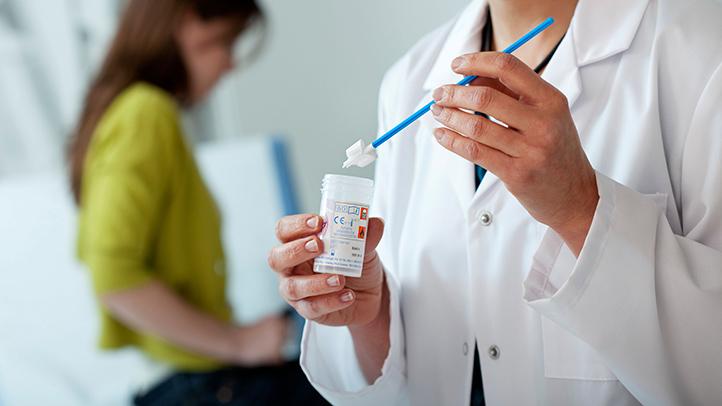Contents:
- Medical Video: Herpes Simplex Virus in Depth / Alynn Alexander, MD
- Should you tell your partner if you are diagnosed with venereal disease?
- When to tell?
- How do you tell your partner that I am diagnosed with venereal disease?
- What should be done next?
Medical Video: Herpes Simplex Virus in Depth / Alynn Alexander, MD
A healthy love affair, whether it's still in the courtship stage or already husband and wife, requires honesty and openness between each other in all things. However, it might be a bit complicated if one partner is diagnosed with sexually transmitted diseases.
Should you tell your partner if you are diagnosed with venereal disease?
It's difficult indeed to speak frankly about your illness with a partner. However, you must be honest with your partner if you are diagnosed with sexually transmitted diseases. This is a must- a responsibility, even. In some countries, hiding sexual health status with your partner can throw you behind bars.
Telling your partner about your condition is not to scare or embarrass yourself. Rejection, anger, scorn, gossip, all of this you may have to face as a consequence. However, no matter how hard this fact is, you still have to say it. This concerns the health and lives of others. It's also a matter of respecting others.
Moreover, you should not only share this condition with your current partner, but also with your ex-partner. Yes. Regardless of whether you and your ex have had sex or not, you still need to tell them. Even if you have sex with a condom, you will still need to tell it.
By telling your partner (and ex-partner), they arecan immediately check his health condition also to ascertain whether they are infected or not. If so, they can get treatment as soon as possible right before the condition gets worse - while preventing the spread of the disease to spread to other people. If not, they can begin to plan preventive measures that are appropriate for the future.
Even if you have a new partner, you have to tell your condition before deciding to have sex. Likewise with him. It is very important for both of you to be open to each other and share about the history of each sex. This can help both of you to plan the best solution so you can have safe sex.
A person will tend to trust and respect people who dare to be honest about his condition before plunging into deeper relationships.
When to tell?
Ideally, you should immediately notify your partner after you are diagnosed positively sexually transmitted diseases. Remember, sexual activity is the main intermediary for transmission of venereal disease. Some venereal diseases can also be transmitted by touching the skin with the skin, such as genital warts and oral herpes sprue. Delaying will only risk the problem that is getting bigger.
If you don't tell your partner and go to the doctor clandestinely without a partner, you both risk experiencing the ping pong effect. Just as the name suggests, the ping pong effect is the occurrence of mutual "gears" of infection from one person to another, and so on. This means that your venereal disease will not completely heal. It will only get worse and spread to other people.
Moreover, not all sexually transmitted diseases will cause clear symptoms. For example, HIV and HPV infection. In fact, many symptoms of venereal disease are similar to other health problems. So, it's important to give it as soon as possible.
How do you tell your partner that I am diagnosed with venereal disease?
Starting to be honest about this heavy problem is indeed not easy. You can train it yourself first, by speaking in front of a glass for example. ImagineYou are conveying it to your partner and predict what possible questions will be given. You have to convince yourself to stay calm and talk softly while talking about this issue.
Prepare all information about the sexually transmitted diseases that you have before discussing them with your partner. Or if necessary, bring articles related to an explanation of your type of illness.
If you already feel steady, invite your partner to discuss together.Talk frankly. For example, "I know we are both looking forward to this moment. But before we have sex, I want us to talk about the right protection. Because, I have just been diagnosed with sexually transmitted diseases. "
Give time for him to digest the new information and give a response. Everyone can react differently. Some may be disappointed, surprised, angry, angry, even angry. This reaction is natural and may not be completely avoided, but believe that this is the best for you both than you let your partner get sick.
Listen carefully to what he says.If the couple asks more details about your condition answer all the questions as detailed as possibleas much as you can. Answer calmly and gently. Don't get angry or upset. This your responsibility to explain your condition, and your partner's rights to find out the condition of the partner.
Calm yourself. You can give more time for him to think about what steps he should take next.Say, "I know you are very shocked to hear this. I don't mean to hide it from you. If you need time to be alone first, it's okay. "By giving an explanation like that shows that you do have good goals and can control yourself when faced with problems.
What should be done next?
After each head is cold, then then you can both plan for the next step. Take a venereal disease test together. Your partner should also be invited to check, even though the partner has not felt any symptoms. That way, you can also avoid the risk of ping pong effects. Because romance involves two people, the examination and treatment for venereal disease also involves two people.
Both of you can also consult with a doctor to get more information while asking for advice on what you should do and avoid during sex. This effort is done so that you and your partner can still enjoy sex even if it is declared positive and as much as possible not to spread it to a healthy partner. Learn how to have safe sex.
If not detected and treated, sexually transmitted diseases can cause infertility - even cancer.












